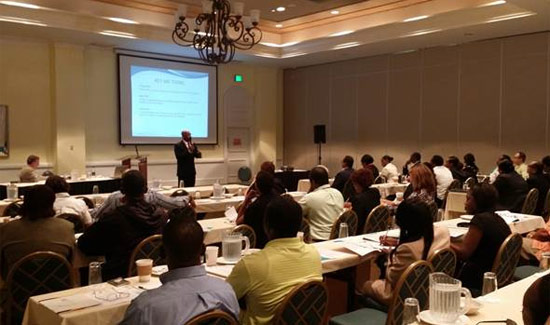
Aviation Law Expert Urges an “Aircraft Registry of Excellence” in Face of FAA’s Demand for Improvement
On the heels of a recent meeting between the Bahamian government and the Federal Aviation Administration (FAA) with The Bahamas given until mid-August to address deficiencies in aviation standards or face a downgrade that could seriously impact every aspect of this nation’s economy, aviation law expert Llewellyn Boyer-Cartwright is pointing to the establishment of an international aircraft registry of excellence as a means to ensure maintaining a high standard in aviation going forward.
“This warning of being downgraded from a Category 1 to a Category 2 is serious and I know that government is working diligently to remedy any deficiencies and to make and implement the necessary improvements, including changing the framework within which the industry operates, separating regulatory and oversight from operations, a very important and not inexpensive move,” said Boyer-Cartwright, a former commercial pilot and now a partner at Callenders law firm and member of the government’s consultative committee on the aircraft registry.
“One of the most certain means of assuring high standards is to establish an international aircraft registry, restricting it to aircraft of a certain age and condition, like that of our ship registry, and avoiding the temptation to build numbers by failing to set the highest standards.”
The Bahamas, he said, cannot afford to become a registry of convenience.
“Ideally, for example, we would accept aircraft no older than, say, 20 years of age in our registry. Whatever the limit, we want to provide an appealing yet high quality registry that is capable of complying with international standards.”
“Aviation is one of the most stringent and regulated markets in the world, second only to nuclear power, according to some experts,” Boyer-Cartwright said, “Setting and maintaining high standards for registered aircraft will serve the secondary purpose of satisfying the requirements of the FAA whose approval is essential for aircraft entering the US from The Bahamas. For the past few years a few of us have been championing the cause for the establishment of an aircraft registry as a means of maintaining a high standard for civil aviation within The Bahamas and I am delighted that the government has taken important steps in that direction, including the establishment of a consultative committee on which I have been happy to serve. However, it is important for us to recognize the need to take a carefully-planned yet expedient approach to establishing the registry.”
Earlier this month, the FAA announced that Stage Two business jets will no longer be able to operate in the US after December 2015. That, says Boyer-Cartwright, may force those aircraft owners to retire their aircraft or register elsewhere.
“The implementation of this new policy could force as much as 60% of all related aircraft to register elsewhere. Many of these aircraft — Falcons, Lear Jets, Gulfstreams — considered top of the line a decade ago — are now aging with large numbers failing to qualify under new standards.
“Naturally, this creates an opportunity for The Bahamas, with owners looking for an alternative jurisdiction,” he continued. “However, we should be careful not to jump too quickly. While it is important for us to capitalize on opportunities, we must be selective.” Maintaining a standard of excellence in an aircraft registry is paramount when it comes to maintaining a high standard for the overall industry, especially in comparison with the high standards of the US and Europe.
In addition to fostering high standards within the industry, Mr. Boyer-Cartwright has pointed to the economic benefits associated with aircraft registries, including opportunities for leasing, financing, surveying and insuring. Economic and entrepreneurial opportunities are also generated due to a need for provisioning, servicing, repairs, fueling and maintenance. Other countries in the region have established registries with much success. Bermuda currently has more than 700 aircraft registered, with majority being commercially operated, and annual revenues topping $18 million by 2017.
Diane Phillips and Associates
Caption: Former commercial pilot, now Callenders law firm partner specializing in aviation, and member of the government’s consultative committee on a Bahamas international aircraft registry Llewellyn Boyer-Cartwright says an international registry of excellence is one means of meeting the increasingly stringent standards demanded by regulators including the FAA. The Bahamas has only weeks to comply. (Photo by Roland Rose for DP&A)



